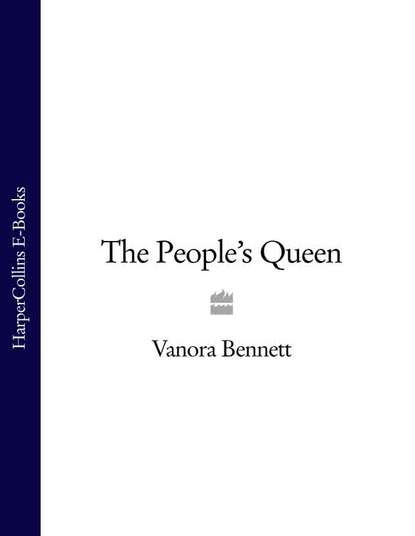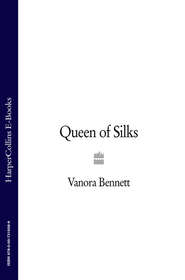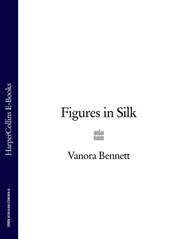По всем вопросам обращайтесь на: info@litportal.ru
(©) 2003-2024.
✖
The People’s Queen
Настройки чтения
Размер шрифта
Высота строк
Поля
But you have to be hungry to have the twitchy energy to get rich; you have to be scared of whatever it is, back there, that you’re getting away from.
And now Alice is in a kindly, glowing, magnanimous frame of mind, having seen the glimmer of a new future in which her position can be quietly consolidated, and she can feel more sure her wealth will be protected after Edward goes, now she is going to have a new patron in Duke John. It’s more of a relief than she expected. She must have been more worried than she knew about what would become of her. Her new serenity means that she is now able to think of other things; of helping people.
Her thoughts turn to Chaucer. Again. She’s pleased she’s done something good for him. She’s paid her debt, more than, by wangling him that job, which will not only help smooth relations between the Duke and London, if Chaucer does that emollient peacemaking thing he’s so good at, but will also raise Chaucer’s standing. It might even keep that disagreeable wife of his happy that he’s got a bit more money coming in, who knows? It feels so good, Alice reflects, to have done someone else a disinterested favour, for once.
It’s not just back-patting, what she’s thinking about Chaucer. She’s also remembering the wistfulness in his eyes as he looked out at Essex, saying ‘sometimes even one marriage’, and the wry spark in them when he added that second phrase, the one about ‘the woe in marriage’.
She likes the way he talks. He’s so hopeless at looking after his own interests, so apparently a fool, but then so intriguing to talk to, and therefore not quite the pushover he seems. He isn’t like anyone she’s ever known. When he says things like that, all sly and mischievous, and his face lights up, he becomes beautiful. She’s surprised at how softly she thinks that.
Maybe that’s why she’s found herself thinking that no one needs to spend their whole life hustling. Of course, if money comes your way, positively asking to be picked up, then why say no? But in the past few days she’s realised she can’t see the need any longer to make grubbing for gold the whole focus of her existence. No point in getting stuck there. Surely, by now, she’s reached a point in life where she can indulge her higher feelings?
Because Alice is happy, she’s feeling especially affectionate towards Edward, who is clip-clopping along next to her on his own bay palfrey.
She’s been remembering, as she rides, as she steals glances at his slumped old body, so tired now, how magnificent he’s looked in the past, tall and thin and energetic in his Garter robes. She’s been remembering him in gold, winning the joust – when he could still joust – and triumphantly bringing out her scarf from his sleeve, and waving it for all to see. She’s been remembering the thrill of his first embrace, of that then-handsome profile, half-seen from very close through her half-shut eyes, her terrified, thrilled thought: Lips anointed by God…touching me…
She doesn’t usually have time for nostalgia. But today she’s indulging herself. It’s making her kind.
Alice can’t wait to get to Sheen, because, once they’re there, and she’s settled Edward in, she’s going to tell him the business idea she’s had. (For Alice’s kindness to Chaucer has been rewarded. Back there, in London, while she was sorting things out for him, talking to merchants in his hall, she was struck by an inspired plan, one of those bolts from the blue. God’s blessings.) It’s not a selfish idea, this one; it’s not something that will benefit her. It will benefit Edward. It should make Edward happy – very happy indeed – because it should sort out Edward’s financial troubles for good. And making Edward happy, she thinks, more earnestly than usual, is what she wants most in life. He’s been so good to her. She’s treasuring her idea, looking forward to seeing his face when he hears.
Meanwhile, she should entertain him…while away the miles…make him laugh.
‘Look, a dragonfly,’ she says. She points it out, and, from astride his horse, Edward’s eyes obediently follow. The insect is glittering blue and green above the stream they’re crossing. Alice adds, ‘Same colours as my robe, do you see?’
Edward’s supposed to chuckle at that – to recognise it as the opening gambit in a game of jewellery-giving. But the eyes he turns to her are blank. He’s all cloudy and confused this morning. Perhaps she should have insisted on a litter. But he was so excited last night at the idea of seeing how his building works were going at Sheen that it never occurred to her he might be like this by daybreak.
Smiling brightly, because she doesn’t know how to behave with Edward except to flirt like a cheeky girl in the presence of the all-powerful, Alice leans over and takes his hand, as if nothing is wrong. ‘Look,’ she repeats, putting the limp, veined claw to her water-coloured taffeta sleeve. ‘I should have a dragonfly brooch made to go with this, shouldn’t I?’
He just nods without seeming to understand.
It’s not the first time; she can’t shake off the unease taking hold of her. Over the next hour, she tries all kinds of things to jog Edward back to his usual self. With that not-worried smile clamped determinedly to her face, she reminds him of how he had the French King John the Good living on English soil as his prisoner for seven years after Poitiers Field, where the Prince of England captured him. England’s most glorious victory, she says, and all yours and your son’s. You really are the king of kings. There’s no reaction. She says, ‘Do you remember? They say John and nineteen knights from his guard dressed identically for battle, to confuse our boys. But we got him anyway.’ She squeezes Edward’s hand. Still limp. ‘Do you remember, afterwards, after he got away again, back to France?’ she whispers with the brightness fading from her voice. ‘How his son escaped too, and the French weren’t paying the ransom for him, but he came back to you, all the way to London – of his own accord – because he didn’t want to dishonour the King of England, who’d treated him so well?’
Edward smiles vaguely. ‘I remember the pageant when he came back…and the procession,’ she falters. She keeps nodding, like an idiot, trying to force a proper response from him. ‘It was the most exciting thing I’d ever seen…I worshipped you that day…from where I was on the street, at least. No one in that crowd could possibly have been shouting louder than I was. And waving…’
He nods, and squeezes her hand weakly back. But she’s still not sure he understands.
It’s a mood, a vapour, she tells herself determinedly; it will pass as soon as he’s rested. She thinks: I’ll send him straight off for a nap when we arrive.
This is how Alice has worked out that Edward can get the money he needs if he is to win the war in France – an outcome which, in turn, might bring Edward himself back to his old glory.
It’s not simple. But then the problem of getting money for the war has become horribly tangled over the years of fading and failure.
The only reason that England has not been utterly defeated in France is that, after his humiliation overseas last year, the Duke of Lancaster arranged a one-year truce on shaming terms. There is no money for more fighting, so, very soon, Duke John will have to leave England to negotiate another truce, and keep hostilities on hold for another year. The next talks, at Bruges, will be even more humiliating. English pride would prefer a different outcome. But English finances are not in a state to dream of that.
King Edward can’t raise enough money for the wars in France nowadays because, back in the good old days of victory, he spent other people’s money so lavishly on warships and destriers and scarlet banners and golden trumpets that he bankrupted the finance houses of Florence and brought trading all over Christendom to a standstill.
It’s taken decades, but at last the Lombard and Florentine bankers are shakily back on their feet. Yet the Crown of England still owes them thousands upon thousands of pounds, amounts carefully noted in clerk hand on the hundreds of dishonoured bonds and tallies that still flutter on desks and in counting-houses today, bonds as useless for the purposes of trading as the ragged pennants and banners of the knights of England, hanging lifeless and flat in their airless armouries, are for the purposes of war. There will be no new loans from the Italians until those hundreds of old insults to the financiers’ honour, those blows to their pockets, are rubbed out of existence.
The whisper blows through the court with every new defeat or humiliation. If only the Italians could be persuaded to lend again…if only. But no one knows how to persuade them.
Meanwhile, the only loans the King can raise are ones that come from his own leading merchants. Thank God for the boom in the wool trade; these three Englishmen are richer than ever before. Not just from wool, because they are also traders in cinnamon and anise and coriander, pomegranates and almonds and oranges, shark’s fins, swordfish and mermaid’s tails, but it’s the high price of English wool these last years that has tipped them into grandeur. The King relies very heavily on Master Walworth and his two friends, now there’s no one else. Perhaps they should be grateful. But they aren’t, particularly. They’re honoured to be asked, of course, but…they don’t think they’ll get the money back. They click their beads, and calculate: the King won’t pay; the war damages our business interests anyway; the Duke wouldn’t win even if we bought him the best army in the world. Alice heard Walworth, back there at Chaucer’s, laughing with Brembre, muttering, obviously of the Duke, ‘Him? He couldn’t lead a pack of choirboys across Chepe – even with a map.’ So why throw good money after bad? The London merchants would rather keep their money in their counting-houses than finance the faint hope England can be glorious in victory. Secretly, Alice can understand why. But Edward finds it a mystery. He begs for their money, cheerfully and nobly enough; he relieves each faint-hearted new Mayor, each summer, of another large sum; he laughs behind their backs at their blind spot about glory; but he’d prefer not to have to humble himself.
This, then, is the problem. Italian bankers: fabulously rich again, but not in the least interested in lending to a bad-risk King. England’s three mightiest merchants: rich and getting richer, but also clinging anxiously to their money-bags. Look at Walworth, back there, at Chaucer’s, tittering so sadly behind his hands for all to see: ‘Is my lord going to want fifteen thousand, or more?’
But what if the King could find someone new, in England, who’s rich enough to borrow money from in the quantities he wants?
That would be the solution.
And what Alice suddenly saw, back there at Chaucer’s house, is that she is in a position to make this happen.
Because, now, there’s Richard Lyons, isn’t there?
She knows, who better, just how rich Richard Lyons has got. They’ve done well together out of the special wool licences; and Alice’s pay, like Latimer’s, has only been a small percentage. Lyons is rolling in it – so rich he could easily afford to lend £15,000 to the King. More, maybe. And the Fleming, unlike the established merchants, would actually like to become Edward’s backer. Since he got so rich, he’s started to crave respectability too. Walworth’s half seen the danger of Lyons; he’s trying to buy him into the establishment with a little job in the City government at Guildhall. But it’s not enough. Lyons is a big powerful man. Nothing would please him better than to bypass Walworth and the City altogether, and make the King his own personal client and friend.
The only obstacle to what Alice has in mind is that Lyons doesn’t actually know the King yet. (Those wool licences were all Alice’s idea, and it was Alice who, for a consideration, got Latimer’s signature on the documents. She didn’t see any need, back then, to bother the King with detail.) But now…well, Alice can introduce Edward to Master Lyons, nothing easier. It’s time they met.
It will make Alice laugh to put old Walworth’s nose out of joint, too. Walworth: so smugly goody-goody, so given to quoting annoying little rules at people, so respectable and pompous and conventional, with his much-paraded friendship with the aristocratic Bishop Courtenay of London and his suspicion of all the new preachers who don’t much like the Church of Rome. She knows Walworth isn’t really quite the paragon of virtue he likes to pretend, whatever his angel face might suggest. She knows he earns a fortune from his Flemish whorehouses at Southwark. And she can’t see why he hasn’t been able to live and let live over the question of the tax-free wool exports, when it’s been such a nice little earner for her and Lyons for so long. But, with the public fuss Walworth’s insisting on making, going blabbing to everyone and their aunt about it, arresting people even, questions are being asked; she’s got no real alternative any more but to get Lyons to stop. Just for that, it’ll do Walworth no harm to get a bit of a jolt.
Everyone else will be happy. For this is the plan Alice is about to set out.
First, Master Lyons must agree to stop using his special licences to export wool tax free. (Chaucer will be pleased – England’s official take from the wool trade will go up, which will make him look good. He might get a pay rise. And it’ll be good for Lyons and Alice and Latimer to move on from wool, and stop the talk.)
Next, Alice will introduce Master Lyons to the King. The Fleming will then be allowed to lend the King a first sum of £20,000. (The King will like that bigger, rounder number better than Walworth’s grudging £15,000 and lending a bit more, to demonstrate generosity, will be no skin off Lyons’ nose).
Third, Lyons will earn a premium of £10,000 on that loan. This means he’ll eventually be repaid a total of £30,000. (That very high 50 per cent interest rate will keep him very sweet, and the King never notices the small print.)
Other merchants won’t be so envious that Lyons has got into the King’s good books when they find out that the Fleming’s willing to accept just half his repayments from the King in actual clinking countable gold coin. He’ll take the other half in the old, discredited debt paper on which the King made his empty promises to the Italians, years ago. Since the King defaulted on this debt, also many years ago now, those worthless old paper promises will not be exchanged at their face value, but at only half what’s written on the page – so any paper signed by the King promising to repay an Italian finance house 100 marks will, now, count as being worth just 50. Even so, prudent City men might feel Lyons was a fool to accept a promise of even 50 from this particular shifty King. (Alice knows Lyons won’t care, even if the King never pays a penny back against the debt. Lyons’ pay-off will be coming from that fat interest rate he’s also getting. Better yet, he’ll be building a relationship with the King, which will stand him in good stead later. So he’ll have nothing to complain of.)
Best of all, this deal might finally end the festering nastiness between King and Italians.
The Italian financiers, who years ago wrote off their loans to the King of England, will suddenly start getting repayments from the Crown, after all. Only on half of what they originally lent, true, but that’s more than they’ve been expecting for all these years. So they’ll be happy. It might be enough to persuade them that the King of England is sorting out the country’s finances. It might even just be enough to persuade the Italians to start lending to the King again…and then, with a combination of Lyons and Italians at his back, who knows what might not happen with the war?
No wonder Alice is pleased with this plan. It’s big. It’s public-spirited. It shows her new maturity. And it solves everyone’s problems.
Most personally pleasing of all, to Alice, is the knowledge that it all grew out of a chance remark at Chaucer’s table, a meeting of eyes between her and Lyons and Latimer while Walworth twittered on about loans; a clear-sighted moment of foreseeing the possible. She’s quietly proud that, even now that she’s so comfortable, and no longer the dewy young girl she once was, she’s still got her wits about her.
How pleased Edward will be, she thinks, as Sheen comes into view through the trees.
It’s chaos in the royal chambers: pale bare stone walls, an uncovered bed frame like a lone ship with no sails, a sea of half-open chests and sacks, and a tide of people sweeping over them, whispering furiously. They’ve turned up late at Sheen. Now tired ladies with muddy hems are doing their best to make up for lost time, pulling out hangings from boxes and pummelling the cushions their demoiselles are yanking from travel bags. Boys with brooms are banging the dust from them. The windows are open, and a chilly summer breeze is gusting at everything. Taller boys on stools and ladders are heaving up heavy brocades and tapestries, stretching to hook the worked cloth from knobs sticking out of the stones, accidentally kicking people passing by carrying clothes or brushes or bed linen or pomanders or perfumes, and hissing and cursing under their breath at all the fiddly effort required to create instant royal splendour.
Alice glides among them with the vague smile she’s always found so useful at court, the one that signifies: ‘I’m not angry, but don’t speak to me just now. I am busy and important. I have better things to do than to be associated with your inefficiency.’
She has a bag in her hand. She doesn’t say a word to anyone. She just floats away into the antechamber, where the window looks out over the park with its drowned greens and greys. Despite the season, a fire is burning (he feels the cold, poor old Edward), and the enormous bathtub, hung with cloth and green ribbons for modesty’s sake, is already steaming.
Edward’s sitting on a stool by the window, still in his soursmelling travelling cloak, with his shoulders sagging, an old man near the end of his days staring out at nature, to which even a king must one day return. He looks round, startled, when he hears her. But then he smiles – only you – and goes back to his faraway thoughts as she moves about behind him.
Detail matters. Edward loves to wash off the dirt of the journey as soon as he arrives in a new place. It’s how he shuts the world out until he’s composed himself enough to behave like a king again. So Alice makes a ritual of it.
She’s ordered the Sheen servants to have water boiling from midday on, so he wouldn’t have to wait. A king shouldn’t wait for his pleasures. From the moment they left Westminster, she hasn’t for a moment taken her eyes off the man on the horse carrying the bag containing the great sweeps of towel and the bath hangings – the finest embroidered lawn, great cloudy sheets of it, with enough green vines and blue flowers and birds on it to blind a dozen seamstresses. She’d need that bag as soon as they reached Sheen: the moment when, as she knows from experience, the mess of arrival would be at its worst. Edward loves those hangings. They go everywhere with him.









